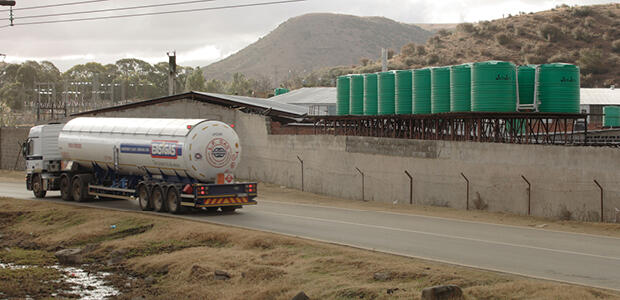Working Paper
A geospatial evaluation of timely access to surgical care in seven countries
Methods: In 2010–2014, we used a situational analysis tool to collect data at district and regional hospitals in Bangladesh (n = 14), the Plurinational State of Bolivia (n = 18), Ethiopia (n = 19), Guatemala (n = 20), the Lao People’s Democratic...
Working Paper
The impact of infrastructure shocks on agricultural markets
Prior to 2009, there was no direct road connection between the southern regions of Mozambique—where the capital city is located—and the more agriculturally-productive central and northern regions. In this paper, we leverage the opening of a major...
Working Paper
The role of the construction sector in influencing natural resource use, structural change, and industrial development in Zambia
The construction sector plays a critical role in delivering quality infrastructure, which in turn influences the use of natural resource revenues towards achieving structural change and industrial development. We use industrial organization and...
Working Paper
Revisiting community-driven reconstruction in fragile states
Community-driven reconstruction (CDR) is an approach to post-war reconstruction that gives discretion to local community councils in establishing priorities and overseeing the implementation of reconstruction and development activities. A series of...
Working Paper
Special economic zones in Southern Africa
Special economic zones (SEZs) in Africa are generally regarded as underperforming relative to their peers in the rest of the world. This study focuses on the design features of the SEZ in Africa that may help explain this underperformance. Literature...
Working Paper
Resource sector concessions and spatial development in Southern Africa
This paper explores how Southern Africa can leverage its mineral resources to support growth and industrialization. It considers the aggregate and spatial effects of transport infrastructure improvements, and the relative benefits of financing these...
Blog
Infrastructure spend: insights from the effect of a bridge across the Zambezi on maize prices
Investments in infrastructure – such as roads – typically aim to reduce transport costs, stimulate trade, and make new production activities viable...
Journal Article
Bringing state-owned entities back into the industrial policy debate
Discussions on the developing world's industrial policies have largely neglected the role of state-owned entities. This paper argues that the resurgence of state capitalism has been, in part, the response of developing countries to the recent pattern...
Working Paper
Contract clientelism
Where does the money come from to buy votes? We argue that an important source of funds for vote-buying comes from ‘contract clientelism’, or the provision of public contracts to private firms in exchange for campaign donations. Using quantitative...
Working Paper
Local content, supply chains, and shared infrastructure
Local content policies in the context of extractive industries have attracted increased interest in recent years. Most countries with a significant extractive industry have included local content requirements either in their legislation or...
Working Paper
De-industrialization, re-industrialization, and the resurgence of state capitalism
Discussions on the developing world’s industrial policies have largely neglected the role of state-owned entities. This paper argues that the resurgence of state capitalism has been, in part, the response of developing countries to the recent pattern...
Working Paper
The role of the construction sector in Ghana
The research explores the structure and performance of Ghana’s construction subsector, in light of the country’s 2007 oil discovery. Using primary and secondary data resources, we discuss how marginal costs and expenditure shocks may vary within the...
Working Paper
The role of the construction sector
The construction sector plays a key role in providing structures for economies.This paper surveys the literature on key issues pertaining to the construction sector. It starts by summarizing our knowledge about differences in unit costs across time...
Working Paper
The effects of the Maputo ring road on the quantity and quality of nearby housing
Using convolutional neural networks applied to satellite images covering a 25 km x 12 km rectangle on the northern outskirts of Greater Maputo, we detect and classify buildings from 2010 and 2018 in order to compare the development in quantity and...
Working Paper
Roads and jobs in Ethiopia
We look at how improving roads can affect jobs and structural transformation. We use a novel geocoded dataset covering the universe of Ethiopian roads and match this information with individual data to identify the effects of improvements in road...

 Join the network
Join the network







